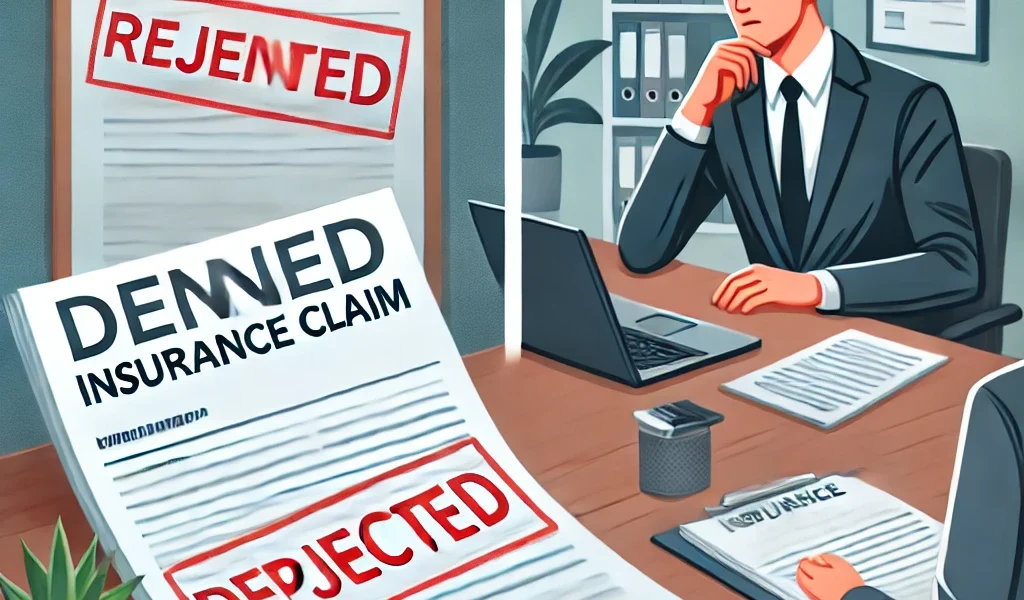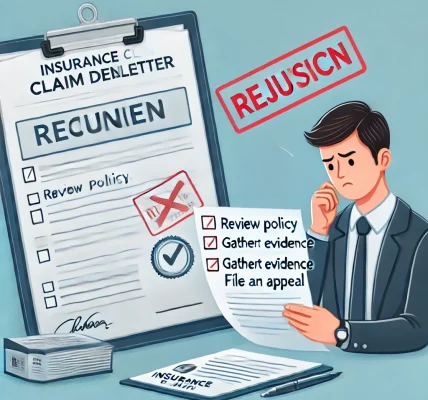Filing an insurance claim can be a stressful process, and it becomes even more frustrating when your claim gets denied. Understanding why insurance claims are denied and knowing how to appeal successfully can significantly increase your chances of getting the compensation you deserve. This comprehensive DIY guide will walk you through the common reasons for claim denials and provide a step-by-step approach to filing a strong appeal.
1. Common Reasons Why Insurance Claims Get Denied
1.1 Incomplete or Incorrect Information
Providing inaccurate or incomplete details on your claim form can lead to an automatic denial. Insurance companies rely on accurate data to process claims, so even minor errors can result in rejection.
1.2 Lack of Coverage
Your insurance policy has specific inclusions and exclusions. If your claim falls outside the covered scenarios, your provider may deny it. Reviewing your policy beforehand can help prevent unnecessary claim submissions.
1.3 Missed Deadlines
Each insurance company has a set time frame within which a claim must be filed. Failing to submit your claim on time can lead to an automatic rejection.
1.4 Insufficient Documentation
Lack of proper documentation, such as photos, receipts, medical reports, or police reports (in case of accidents), can make it difficult for insurers to validate your claim.
1.5 Policy Lapses Due to Non-Payment
If your insurance policy has lapsed because of missed premium payments, your claim will likely be denied. Always ensure your premiums are up to date to avoid such issues.
1.6 Suspicion of Fraud
If the insurance company suspects fraudulent activity, such as exaggerated damages, false claims, or misrepresentation of facts, they may reject your claim.
1.7 Pre-Existing Conditions (for Health & Life Insurance Claims)
Certain health and life insurance policies exclude pre-existing conditions. If your claim is related to an excluded condition, it may be denied.
1.8 Excluded Damages
Policies often exclude specific types of damages, such as floods, earthquakes, or intentional harm. If your loss falls under an exclusion clause, your claim will be rejected.
2. How to Appeal a Denied Insurance Claim Successfully
If your claim gets denied, don’t lose hope! You have the right to appeal the decision and present additional evidence to support your case.
Step 1: Review the Denial Letter
Your insurance provider will send you a denial letter explaining why your claim was rejected. Carefully read the letter and compare the reason against your policy terms.
Step 2: Gather Supporting Documents
- If your claim was denied due to lack of documentation, collect additional evidence such as medical reports, repair estimates, or witness statements.
- If the insurer disputes the cause of damage, obtain professional assessments or second opinions to strengthen your case.
Step 3: Contact Your Insurance Provider
Reach out to the claims department for clarification. Sometimes, a denial may be due to a simple misunderstanding that can be resolved without a formal appeal.
Step 4: Write a Formal Appeal Letter
Draft a strong appeal letter addressing the reason for denial and providing additional proof. Your letter should include:
- Your policy number
- Claim reference number
- A summary of the original claim
- Explanation of why the denial was incorrect
- Supporting documentation (photos, medical records, receipts, etc.)
Step 5: Submit Your Appeal Within the Deadline
Most insurance companies have a specific appeal window (e.g., 30-60 days). Ensure your appeal is submitted before the deadline to avoid automatic rejection.
Step 6: Follow Up Regularly
Insurance appeals take time. Stay proactive by calling or emailing your claims adjuster regularly to check the status of your appeal.
Step 7: Consider Hiring a Professional
If your appeal is denied again, you may need to seek help from:
- An insurance attorney for legal guidance
- A public adjuster to negotiate on your behalf
- A state insurance department if you suspect unfair claim denial
3. Tips for Preventing Claim Denials in the Future
✔️ Read Your Policy Thoroughly
Understanding your policy coverage can prevent filing claims that don’t meet the insurer’s terms.
✔️ Document Everything
Keep detailed records of communication, receipts, and damage reports to support future claims.
✔️ File Claims Promptly
Always submit claims as soon as possible to avoid missing deadlines.
✔️ Be Honest & Transparent
Never provide misleading or exaggerated information. Honesty increases the likelihood of a successful claim.
4. Frequently Asked Questions (FAQs)
Q1. How long does it take to appeal a denied claim?
It varies, but most appeals take between 30 to 90 days. Complex cases may take longer.
Q2. Can I sue my insurance company for denying my claim?
If you believe your claim was wrongfully denied, you can seek legal assistance to file a lawsuit against your insurer.
Q3. What if my insurance company doesn’t respond to my appeal?
If your insurer ignores your appeal, escalate the issue by filing a complaint with your state’s insurance regulatory body.
Q4. Will appealing a claim affect my insurance rates?
No, filing an appeal does not automatically raise your premiums. However, multiple claims within a short period may impact your renewal rates.
Q5. What’s the success rate of appealing denied claims?
While success rates vary, 40-60% of appeals result in claim approvals, especially when proper documentation is provided.
Final Thoughts
A denied insurance claim doesn’t have to be the end of the road. By understanding the common reasons for denials and following a structured appeal process, you can improve your chances of a successful claim resolution. Always stay informed, act promptly, and provide thorough documentation to strengthen your case.




